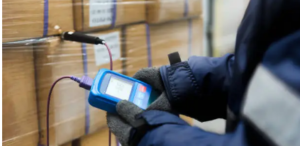Industrial refrigeration is essential to many industries, particularly those producing food or other items that must be stored cold. Industrial refrigeration Melbourne helps lower costs, boost revenue and preserve product quality.
 Though used equipment may appear like a compromise in quality, trusted outlets ensure these units have been comprehensively inspected, tested, and cleaned before sale.
Though used equipment may appear like a compromise in quality, trusted outlets ensure these units have been comprehensively inspected, tested, and cleaned before sale.
Refrigerant
Industrial refrigeration Melbourne plays an essential role in numerous industries, from food production and manufacturing to pharmaceuticals, energy and more.
Refrigeration ensures products remain at low temperatures to extend shelf life, prevent microbiological contamination, and enhance quality – an asset to any mechanical contractor offering refrigeration systems service. Therefore, a contractor with this specialisation could find themselves with many prospective clients.
Refrigeration uses refrigerants to move thermal energy around a system in an energy-saving cycle of evaporation, compression, condensing and expansion. From home refrigerators to industrial chillers, refrigerants transfer heat between compressors, condensers and evaporators – providing cooling comfort when temperatures become unbearably hot!
Today’s industrial refrigeration uses an assortment of natural refrigerants that have zero ozone depletion potential and lower global warming potential, such as ammonia and carbon dioxide (CO2).
Condenser
Industrial refrigeration is essential in many industries, from food processing to construction. Refrigeration allows machinery to remain at low temperatures to reduce rust and corrosion, increase efficiency, and ensure product safety and employee well-being.
Condensers transfer heat from hot vapour refrigerants passing through them into the cooler air, flowing by, turning them back into liquid form. Natural refrigerants like ammonia, carbon dioxide and hydrocarbons are often chosen because of their lower environmental impact and more efficient energy consumption.
An industrial refrigeration system’s optimal condenser selection depends on many variables, including operating environment, noise levels, energy efficiency and maintenance needs. Software monitoring the system and servicing can reduce downtime while helping avoid costly repairs.
Compressor
Industrial refrigeration Melbourne systems are integral to many different industries, from food processing and construction to commercial roofing and more. They aim to transfer heat away from products or processes using refrigeration cycles that move it off-site for cooling purposes.
The compressor is at the core of refrigeration systems, responsible for raising refrigerant gas to its desired pressure level and can be hermetic, open or semi-hermetic in design.
Industrial refrigeration systems typically utilise either screw, rotary scroll, or centrifugal compressors for refrigerant pressure increases. Each type works differently to increase pressure but ultimately produces high-quality, energy-efficient gas essential to the refrigeration cycle. After being compressed by one of these compressors, the compressed refrigerant travels to its appropriate condenser, where it condenses out of liquid form before being sent through an expansion valve to lower its pressure before finally returning through another expansion valve for expansion and thus completing a cycle.
Low-code platform
Refrigeration systems are integral to many industries, from food processing to pharmaceutical manufacturing. These robust systems must meet specific specifications while being easy to maintain; ARANER offers solutions that fit this need. In this guide, we explore their intricacies, components, and types – providing essential insight for choosing and maintaining an appropriate system for your business needs.
Industrial refrigeration requires specific skills that general mechanical contractors often don’t possess. Offering this service could add an attractive revenue stream for your company. Still, before getting involved with these systems, you must understand their basics and access a low-code platform that will enable rapid development and deployment.
Maintenance
Whether used for cold storage, chemical production or pharmaceutical production, industrial refrigeration systems require expert knowledge and maintenance practices to operate correctly and avoid costly downtime or product loss. These complex systems must operate flawlessly to avoid unnecessary costs associated with downtime and product loss.
Maintain a regularly clean interior of the unit to reduce debris or decor that obstructs airflow and forces your equipment to work harder than needed. Furthermore, monitoring defrost capabilities weekly is necessary to avoid overworking an asset and increasing power costs.
Whether you’re a supermarket or a food manufacturer, it is essential to keep your products at their ideal consumption conditions. Industrial refrigeration can help you achieve this goal by reducing waste and keeping your products safe for your customers.
The food industry has unique production needs that require specific storage and transportation conditions, as well as strict temperature monitoring. In addition, the food industry has to deal with time-sensitive supplies and must practice efficient inventory management.